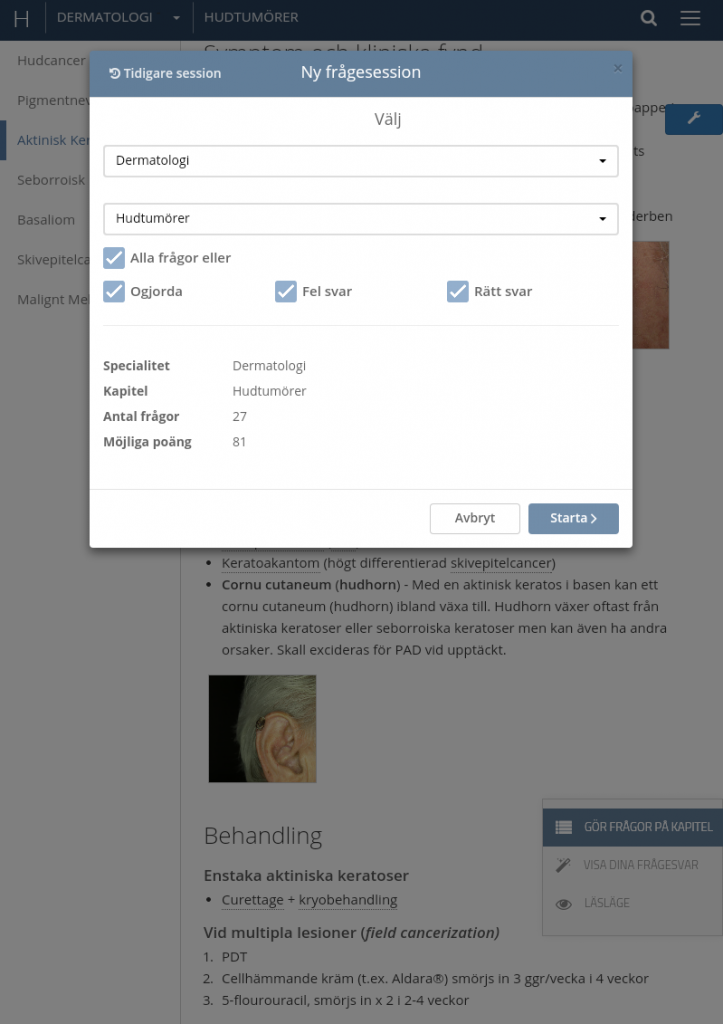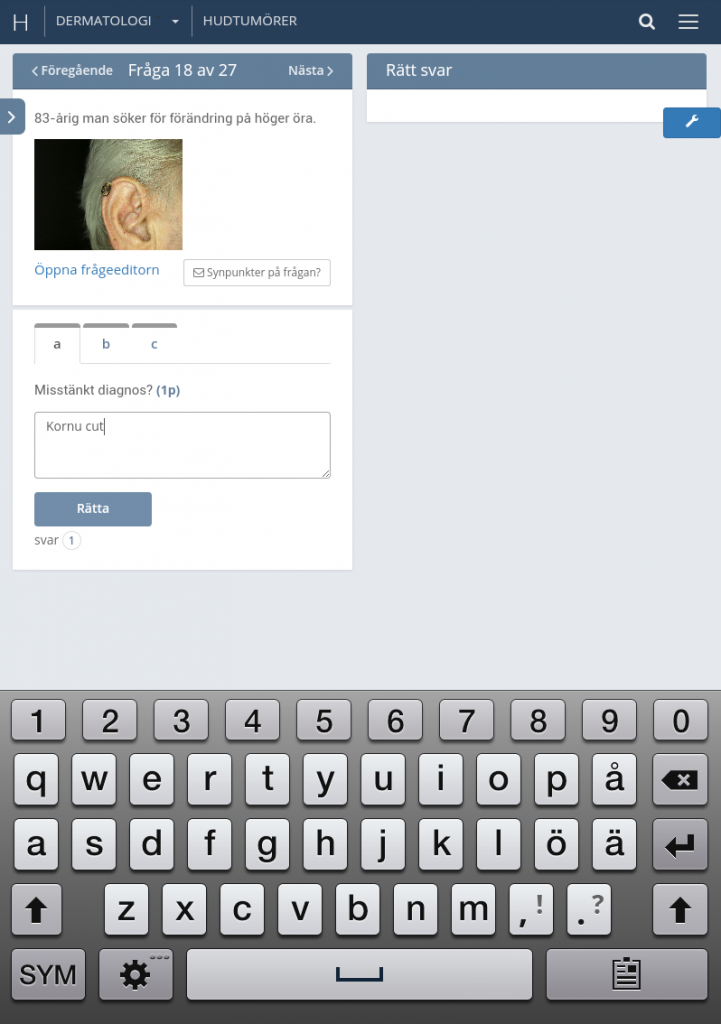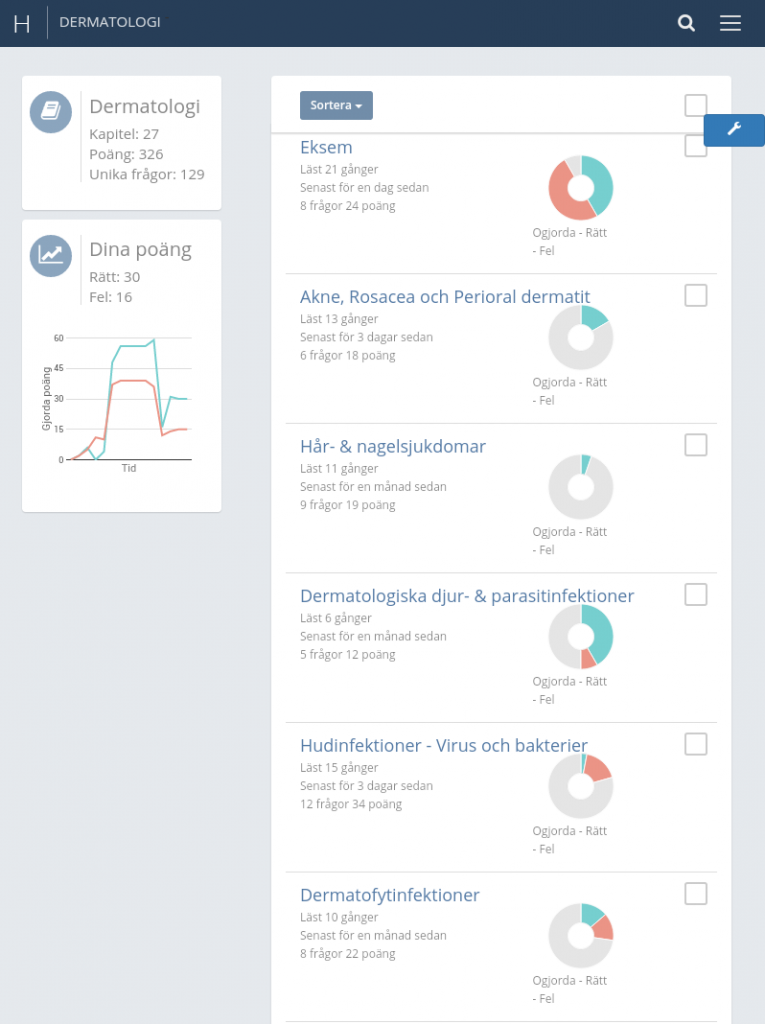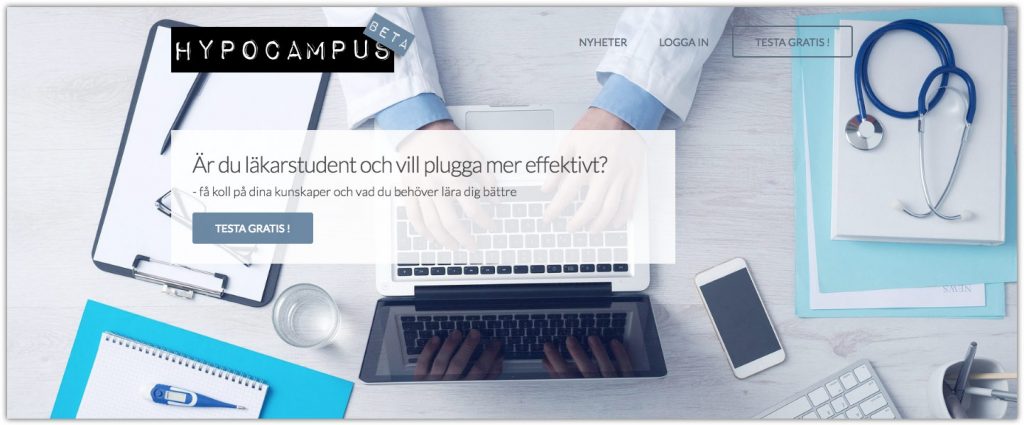What is test-enhanced learning?
Test-enhanced learning (also known as “testing effects “, “retrieval practice effects “, “retrieval enhanced learning “, etc.) is based on a relatively simple principle; after you’ve learnt something new, read a book, watched a movie, listened to a lecture, etc, you test yourself on the new knowledge, it increases the memory’s long-term storage of the new knowledge. The positive effects of test-enhanced learning are some of the most confirmed principles in cognitive psychology1,2 . Hundreds of studies have been conducted in this area and have shown that test-enhanced learning is effective for a variety of knowledge areas and works for a large age range, ranging from children to older age groups3 .
It may be important to emphasize that test-enhanced learning is not about increased need for standardized exams or increased frequency of exams during a course. Most studies that have investigated and seen positive effects of testing effects have studied the effect of study questions and quizzes where very little has been at stake for the student, ie the results of the test have not affected the students’ grades or reputation in any way.
It is not a new idea that exams and tests are not only a useful tool for measuring students level of knowledge but are also an effective method for increasing students learning. However, it is only in the last decade that a number of studies have shown how effective the method actually is. Various studies have shown in recent years that test-enhanced learning provides enhanced learning for studies in medicine4 other natural sciences5 languages6 history7 etc.
The book “Make it stick” (Brown, Roediger, and McDaniel) describes test-enhanced learning by a medical student who started using the method to improve her results:
“It makes you uncomfortable at first. If you stop and rehearse what you’re reading and quiz yourself on it, it just takes a lot longer. If you have a test coming up in a week and so much to cover, slowing down makes you pretty nervous…You just have to trust the process, that was really the biggest hurdle for me, was to get myself to trust it. And it ended up working out really well for me.”
For this student, the testing effect worked beyond expectation and, according to the authors, went from being one of the worst in the class to performing within the class’s top 10-15% in terms of exam results.
Why does it work?
Exactly how test-enhanced learning leads to enhanced long-term memory is not clear. One theory put forward8 is that one can schematically divide the functionality of the memory into two parts; storage capacity and retrieval capacity. Retrieving knowledge from memory, which is done during testing, not only enhances the retrieval capacity but also the retention capacity. What has been shown in studies is that the effect of test-enhanced learning is greatest if you repeat the tests at increasing intervals, so that at every interval the memory of the knowledge is retrieved approximately when you would otherwise forget it9. This means that in the short term it can be effective to just read a long text the day before the exam to pass the exam the next day. However, if the material is too large to load in one day and you want to start studying several days before an exam, then test-enhanced learning is more effective both to pass the exam and to continue to remember the learned knowledge after the exam is completed.
What does the research say?
Retrieval Practice Produces More Learning than Elaborative Studying with Concept Mapping
An article published in Science describes an experiment10 in which four groups of students study a scientific text in four different ways:
- In group 1, the students had to read a text once
- In group 2, students were allowed to read the text four times in succession
- In group 3, students were allowed to read the text and then make a mind map of the content of the text
- In group 4, students were allowed to read the text, then try to remember as much as possible of the text with the help of questions on the text content, then read the text and try again to recover as much of the text as possible from the memory.
After a week, the students had to come back and test their knowledge in a new form of question test. Not surprisingly, Group 1, which had only read the text once, was the worst. Groups 2 and 3 performed about equally well in the tests and no significant difference was seen. Group 4, on the other hand, performed significantly better than Group 3 in terms of long-term memory storage.

Test-Enhanced Learning Taking Memory Tests Improves Long-Term Retention
In another study, university students were divided into three groups where all the groups studied a text on four occasions. The students could at any time either read the text (L) or test on the knowledge (T).
- Group 1 read the text on each occasion (LLLL)
- Group 2 read the text three times and then interrogated on one occasion (LLLT)
- Group 3 read the text once to be heard on three occasions (LTTT)

Some of the students were then interviewed 5 minutes after the fourth study session, some were interrogated after 2 days and some were interviewed a week later. In the final testing, it was found that the results differed depending on whether the students were tested after 5 minutes or a week. In the testing that took place 5 minutes after the last study session, the students who read the text performed four times better than the other groups. But in the test after a week the students who read the text once and answered question three times, were better than any of the other groups. It turned out that after one week, the students in group LLLL forgot 52%, in group LLLT the students had forgotten 28% and in group LTTT the students had only forgotten 14%.
The interim test effect: Testing prior material can facilitate the learning of new material
Another interesting aspect of test-enhanced learning is the fact that testing on certain parts of read material also seems to increase the learning of the material that is not knowledge-tested11 . In a study, students were divided into two groups where one of the groups read three different texts (text A, B and C) on three different occasions. The other group also read the text on three different occasions and after reading text A and B they were tested on the content of the respective text. Both groups one and two were then tested on text C.
- Group 1
- read text A
- read text B
- read text C
- Group 2
- read text A → Asked for text A
- read text B → Interviewed on text B
- read text C
- Groups 1 and 2 were interviewed on text C

It turned out that group 2 performed twice as well as group 1 when tested on text C.
How do we use test-enhanced learning?
It should be said that none of us in Cortexio is an expert in the field. It is interest in the area that has led us to try to get into the research field and we have started from the articles with results that appear to be reproducible. We understand that the learning process is extremely complex and that different individuals can have different great benefits from different methods. With regard to medical education, knowledge must be approached in several ways and there is no book or software in the world that corresponds to real clinical experience or practice in patient talk. However, we are convinced at the same time that there is a great value in having a broad knowledge base. Our idea is that if we can increase learning and long-term storage by only a few percent at the same time, it is a big step forward.
We have tried to use students’ current study methods to make Cortexio as easy to use as possible. We give users the opportunity to read a chapter, answer questions about the content and then be able to read the chapter again and see which rights and wrongs one has had to focus on their weaknesses. We also provide statistics on which chapters the user is weak on and progress over time.
- Read a chapter

2. Select “do questions”

3. Answer the question

4. When you read the chapter again, you can see which parts you did not hear and which parts you answered correctly or incorrectly


5. You can also see which chapters you are weak on and progress over time.
References
- Roediger HL III and Butler AC (2011). The critical role of retrieval practice in long-term retention. Trends in Cognitive Sciences 15, 20-27.
- Roediger HL III and Pyc MA (2012). Inexpensive techniques to improve education: Applying cognitive psychology to enhance educational practice. Journal of Applied Research in Memory and Cognition 1, 242-248.
- Agarwal, P.K., Bain, P.M. & Chamberlain, R.W. Educ Psychol Rev (2012) 24: 437. doi:10.1007/s10648-012-9210-2. JESSICA M. LOGAN AND DAVID A. BALOTA, Aging, Neuropsychology, and Cognition, 15: 257–280, 2008 http://www.psypress.com/anc ISSN: 1382-5585/05 print; 1744-4128 online DOI: 10.1080/13825580701322171
- Larsen DP, Butler AC, and Roediger HL III (2009). Repeated testing improves long-term retention relative to repeated study: a randomized controlled trial. Medical Education 43, 1174-1181.
- McDaniel, M. A., Agarwal, P. K., Huelser, B. J., McDermott, K. B., & Roediger, H. L. (2011). Test-enhanced learning in a middle school science classroom: The effects of quiz frequency and placement. Journal of Educational Psychology, 103,399-414.
- M.A. Pyc, K.A. Rawson / Journal of Memory and Language 60 (2009) 437–447
- Henry L. Roediger III, Pooja K. Agarwal, Mark A. McDaniel, and Kathleen B. McDermott, Test-Enhanced Learning in the Classroom: Long-Term Improvements From Quizzing, Journal of Experimental Psychology: Applied,2011, Vol. 17, No. 4, 382–395
- Bjork & Bjork 1992
- Henry L. Roediger, III, and Jeffrey D. Karpicke, Test-Enhanced Learning Taking Memory Tests Improves Long-Term Retention, 2006 Association for Psychological Science, Volume 17—Number 3
- Jeffrey D. Karpicke and Janell R. Blunt, Retrieval Practice Produces More Learning than Elaborative Studying with Concept Mapping, Science, 11 Feb 2011: Vol. 331, Issue 6018, pp. 772-775, DOI: 10.1126/science.1199327
- Wissman KT, Rawson KA, and Pyc MA (2011). The interim test effect: Testing prior material can facilitate the learning of new material. Psychonomic Bulletin Review 18, 1140-1147.
